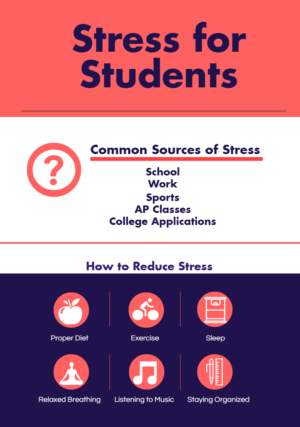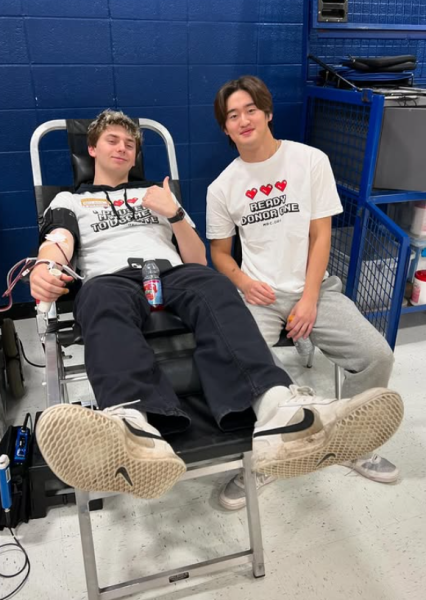The Benefits of Taking a Break
After coming back from a long break, it can be hard to focus on the task at hand. Weeks of doing what we want and not being told when to get up and what to do for eight hours of our day gets us out of our routine of being in school. Getting back into this routine can be a challenge. As we get back into this routine, it is important to not for us to not forget an essential part of our days. Sleep and downtime.
Downtime. True downtime allows a human to be free of all artificial stimulation and focus on what is going on inside and around us. Even though we may feel as though our brain is resting, it is far from it. The brain is constantly working for us; letting the brain rest allows it to process information that has not yet been processed. During downtime the brain processes our previous experiences, learning and memories.
Since the brain is constantly working, it requires about 20 percent of the energy being taken in by the body according to Scientific Learning. The brain is the most complex organ in the body, so it makes sense that it would take up 20 percent of the energy taken in
In the United States there is a large emphasis on working hard and taking time to rest gets overlooked. According to Scientific America, Americans have an average of 10 days of paid leave. In most European countries, there are double the amount than in the United States. America is a county consumed by its work, to the point where a conference call becomes more important than a family dinner. The absence of these interactions does not allow us to make those vital connections with those we love and we become robots driven solely by money.
Overworking can lead to anxiety, depression and burnout. If someone is working too hard without enough reward or rest time, burnout is common. Workers lose desire to continue at their level of quality and quantity. This leads to less work getting done and an unhappy worker.
For the brain, sleep is the best form of downtime. During sleep, the brain undergoes a cleaning process that allows it to function faster and more accurately. The Taking a 10-30 minute nap can increase the brain’s functioning power and increase alertness. According to The National Sleep foundation, children (18 and under) should get 8 to 10 hours of sleep per night. The average amount of sleep for this age range is currently 6.8 hours.
Not getting enough sleep can also cause physical problems in one’s body such as a higher risk of diabetes, heart disease and stroke, according to Harvard Health. The human body needs a good amount of sleep for all organs to function properly. Muscles and other parts of the body also benefit from sleep.
Instead of sleeping, children are spending time in front of screens or trying to keep up with a overbooked schedule that does not allow for enough sleep. Knowing how to manage time and when to skip a sports practice or not watch another episode would help to combat this trend of sleep deprived children.
Since the brain is not getting enough sleep, it can cause it to not function at a high enough level. This can affect students learning. If the brain is not working at it’s maximum capacity, it will not absorb information; if breaks are not taken the brain will not have time to process the information learned during the day so a deep understanding will not be gained.
Sleep and true downtime may be overlooked as time we can use to get that last homework assignment done or quick check social media, but these are some of the most important time of day that should be made a priority instead of brushed aside.























































